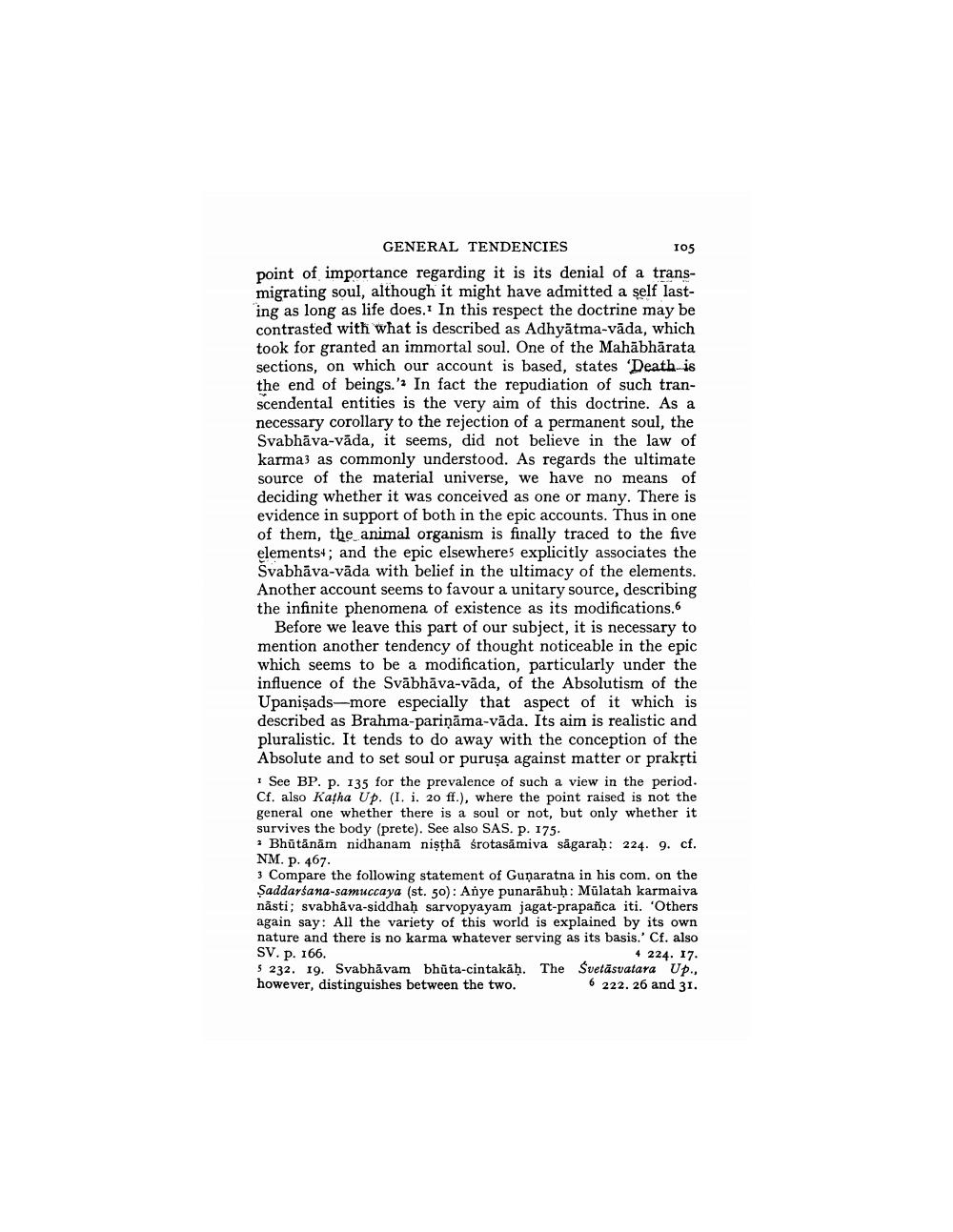________________
GENERAL TENDENCIES
105
point of importance regarding it is its denial of a transmigrating soul, although it might have admitted a self lasting as long as life does. In this respect the doctrine may be contrasted with what is described as Adhyātma-vāda, which took for granted an immortal soul. One of the Mahabharata sections, on which our account is based, states 'Death is the end of beings.' In fact the repudiation of such transcendental entities is the very aim of this doctrine. As a necessary corollary to the rejection of a permanent soul, the Svabhāva-vāda, it seems, did not believe in the law of karma3 as commonly understood. As regards the ultimate source of the material universe, we have no means of deciding whether it was conceived as one or many. There is evidence in support of both in the epic accounts. Thus in one of them, the animal organism is finally traced to the five elements; and the epic elsewheres explicitly associates the Svabhāva-vāda with belief in the ultimacy of the elements. Another account seems to favour a unitary source, describing the infinite phenomena of existence as its modifications.6
Before we leave this part of our subject, it is necessary to mention another tendency of thought noticeable in the epic which seems to be a modification, particularly under the influence of the Svabhāva-vāda, of the Absolutism of the Upanisads-more especially that aspect of it which is described as Brahma-pariņāma-vāda. Its aim is realistic and pluralistic. It tends to do away with the conception of the Absolute and to set soul or purușa against matter or prakṛti
1 See BP. p. 135 for the prevalence of such a view in the period. Cf. also Katha Up. (I. i. 20 ff.), where the point raised is not the general one whether there is a soul or not, but only whether it survives the body (prete). See also SAS. p. 175.
Bhūtānām nidhanam niṣṭhā śrotasāmiva sägarah: 224. 9. cf. NM. p. 467.
3 Compare the following statement of Gunaratna in his com. on the Saddarśana-samuccaya (st. 50): Anye punarähuḥ: Mülatah karmaiva nāsti; svabhāva-siddhaḥ sarvopyayam jagat-prapañca iti. 'Others again say: All the variety of this world is explained by its own nature and there is no karma whatever serving as its basis.' Cf. also SV. p. 166. 4 224. 17. 5232. 19. Svabhāvam bhūta-cintakāḥ. The Svetasvatara Up.. however, distinguishes between the two. 6 222. 26 and 31.




